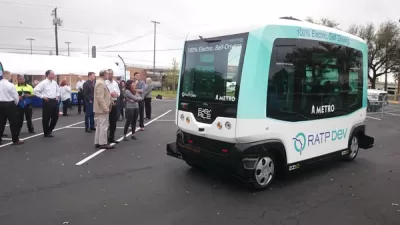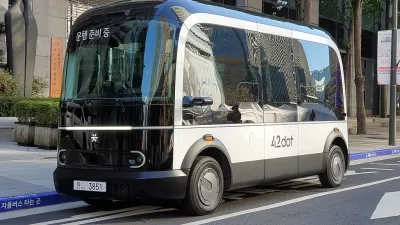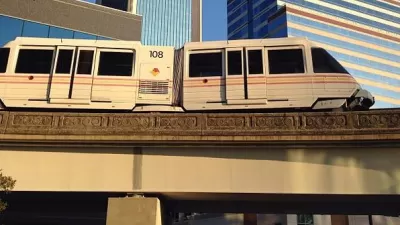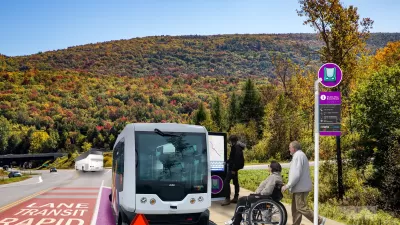A public-private partnership is under consideration in the Florida State Legislature to create a driverless shuttle route in Altamonte Springs.

"A bill proposed in the Florida Legislature would bring a smart corridor with autonomous vehicles to Altamonte Springs," reports Ryan Lynch.
"Driverless electric shuttles would take people to the Uptown Altamonte district as well as to places such as the Altamonte Springs SunRail station, AdventHealth Altamonte Springs and the Altamonte Mall," adds Lynch.
HB 403, proposed by Rep. Scott Plakon (R-Longwood), would request $2 million in funding from the Florida Department of Transportation to fund the project. The city of Altamonte Springs would provide $500,000. A joint private partner will pay the remaining $6.2 million needed for the project.
According to the bill, the project is intended to ease congestion on State Road 436. State officials are pitching the corridor as a new, alternate mode of transportation, as well as a "last-mile" transportation solution.
As noted by Lynch, the Altamonte Springs corridor plans are far from the only autonomous vehicle plans in the works in Florida. "Orlando-based Beep Inc. said it plans to add two autonomous shuttles in the fast-growing Lake Nona area in southeast Orlando by this spring as part of a larger mobility program in the area called Move Nona," according to Lynch.
"Also in the works is the SunTrax self-driving vehicle test facility in Polk County — a 2.25-mile test track designed for high-speed travel —which is being built on a 475-acre Auburndale site and is set to have its first phase open this year."
FULL STORY: $8.7M driverless shuttle project proposed for Altamonte Springs

Alabama: Trump Terminates Settlements for Black Communities Harmed By Raw Sewage
Trump deemed the landmark civil rights agreement “illegal DEI and environmental justice policy.”

Planetizen Federal Action Tracker
A weekly monitor of how Trump’s orders and actions are impacting planners and planning in America.

The 120 Year Old Tiny Home Villages That Sheltered San Francisco’s Earthquake Refugees
More than a century ago, San Francisco mobilized to house thousands of residents displaced by the 1906 earthquake. Could their strategy offer a model for the present?

In Both Crashes and Crime, Public Transportation is Far Safer than Driving
Contrary to popular assumptions, public transportation has far lower crash and crime rates than automobile travel. For safer communities, improve and encourage transit travel.

Report: Zoning Reforms Should Complement Nashville’s Ambitious Transit Plan
Without reform, restrictive zoning codes will limit the impact of the city’s planned transit expansion and could exclude some of the residents who depend on transit the most.

Judge Orders Release of Frozen IRA, IIJA Funding
The decision is a victory for environmental groups who charged that freezing funds for critical infrastructure and disaster response programs caused “real and irreparable harm” to communities.
Urban Design for Planners 1: Software Tools
This six-course series explores essential urban design concepts using open source software and equips planners with the tools they need to participate fully in the urban design process.
Planning for Universal Design
Learn the tools for implementing Universal Design in planning regulations.
Clanton & Associates, Inc.
Jessamine County Fiscal Court
Institute for Housing and Urban Development Studies (IHS)
City of Grandview
Harvard GSD Executive Education
Toledo-Lucas County Plan Commissions
Salt Lake City
NYU Wagner Graduate School of Public Service





























